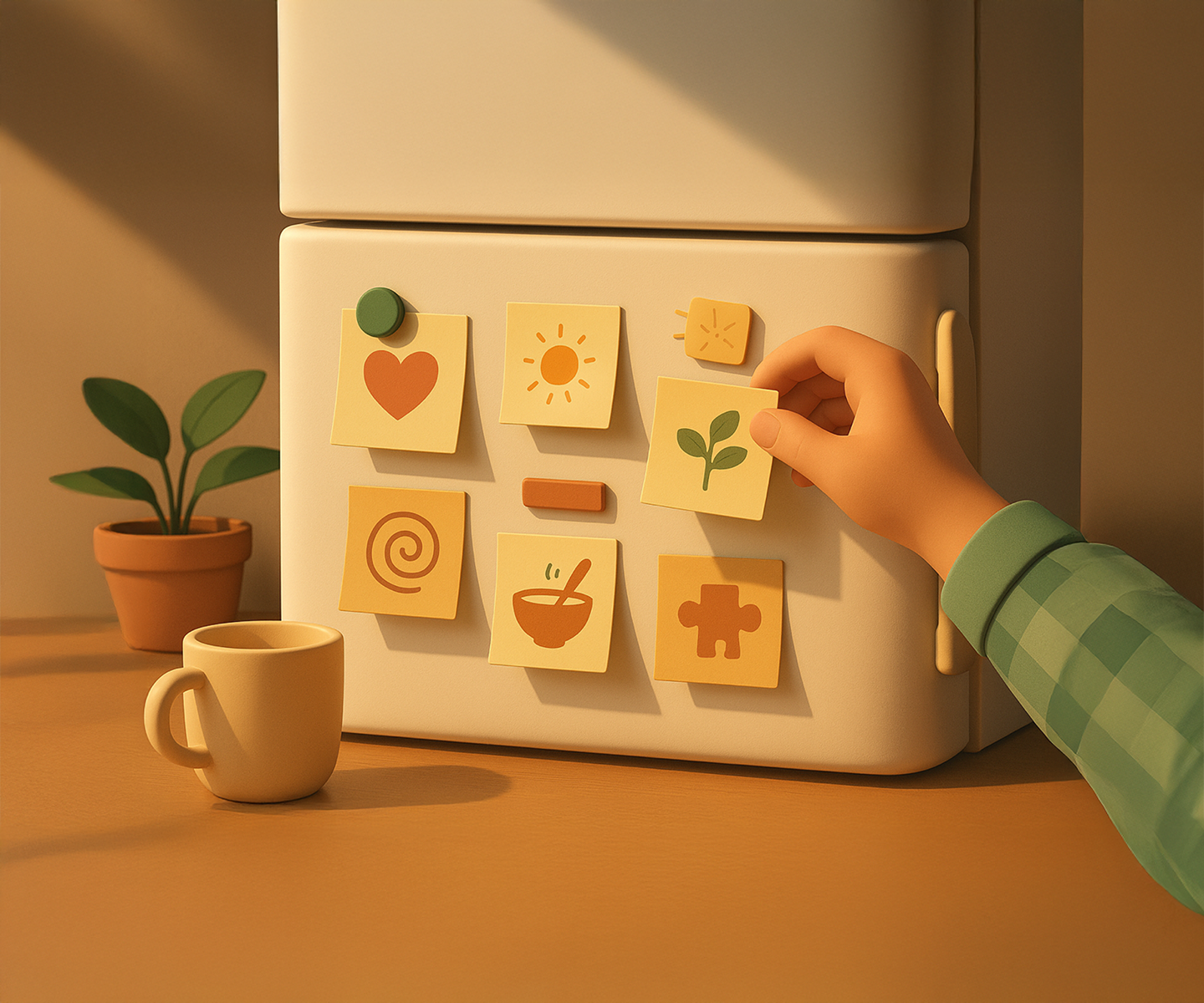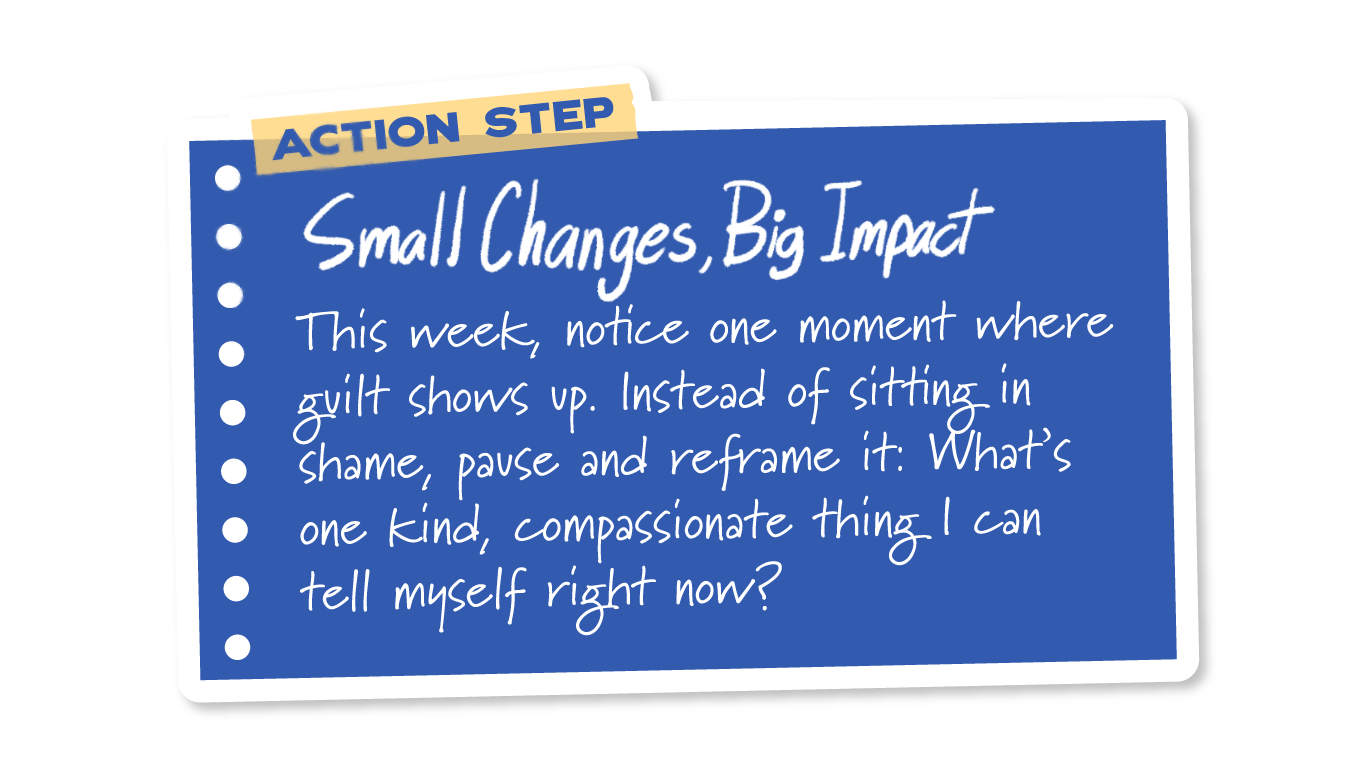

If you live with diabetes, chances are you’ve felt food guilt before. Maybe it was after a slice of birthday cake, an extra serving of pasta, or an off-plan snack. That heavy feeling can creep in fast, leaving you stuck between shame and frustration.
But here’s the truth: food guilt doesn’t help you heal. In fact, it can make managing diabetes harder by adding stress, shame, and pressure to something you already navigate every day. Healing your relationship with food takes time, but there’s hope.
Here are three gentle ideas to help you begin moving past food guilt.
Instead of labeling foods or choices as “bad,” try seeing them as feedback. Ask yourself:
This shift turns guilt into curiosity. It transforms a moment of frustration into an opportunity to understand your body more deeply.
Blood sugar management isn’t about one meal, it’s about patterns over time. One snack, one dessert, or one indulgent meal does not define your health. What you do most of the time is the real impact on your health.
When guilt creeps in, remind yourself: It’s the overall balance that matters, not perfection in every bite. Just as one salad doesn’t “fix” everything, one treat doesn’t undo all your efforts.
What if you spoke to yourself the way you’d speak to a friend? Instead of saying, “I blew it, I’m so bad at this,” try:
Self-compassion reduces stress, improves resilience, and helps you stay consistent in the long run.
Food guilt is heavy, but it’s not permanent. By reframing mistakes as learning, keeping perspective on the big picture, and practicing self-compassion, you can start to build a more peaceful relationship with food.
Healing takes time, but every gentle step forward is progress.
